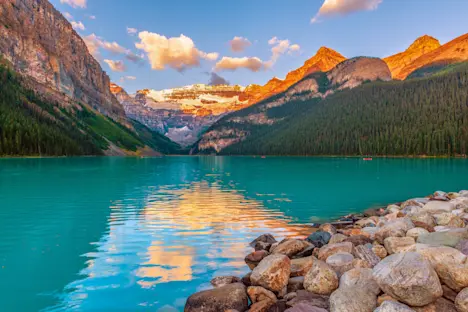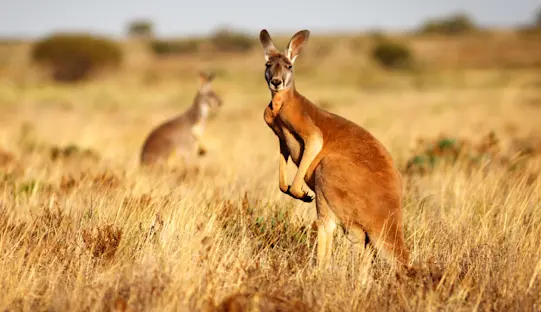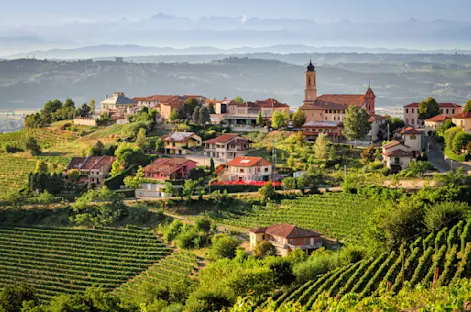
Recently, the Trump administration signed an order to reduce the size of Bears Ears National Monument from 1.3 million acres to 228,000—15 percent of its original size. Some outdoor retailers are fighting back. ©Bob Wick/Bureau of Land Management
In early December 2017, Patagonia—the outdoor clothing and gear company for silent sports—took a major stand. When Christmas shoppers looking for gifts visited the Patagonia website, they were met not by the usual ads but by a black screen with big, white letters that stated: “The President Stole Your Land.” In smaller text, below, were the words: “In an illegal move, the president just reduced the size of Bears Ears and Grand Staircase-Escalante National Monuments. This is the largest elimination of protected land in American history.” Underneath that was a “Take Action Now” button.
The display was in response to the Trump administration’s recent order to reduce the size of the two national monuments in Utah by nearly 2 million acres combined. At the same time, REI, another recreational gear company, also made its stance known; on its home page was the sentence: “Despite the loss of millions of acres of protected lands this week, REI will continue to advocate for the places we all love.”
It’s clear that the outdoor industry is starting to realize its clout and power, and it’s doing so in an unprecedented way. But is championing public lands where its influence will end, or will it become a key player in tackling other, more overarching social issues for the public’s benefit?

In December 2017, outdoor clothing company Patagonia changed its home page to a black screen with a stark message.
Moving a state show
According to the Outdoor Industry Association’s 2017 Outdoor Recreation Economy Report, the outdoor recreation industry is a powerful force in the overall U.S. economy: it accounts for $887 billion annually in consumer spending, supports more than 7.6 million American jobs and generates almost $125 billion in federal, state and local taxes. That makes it bigger than the auto and pharmaceutical industries combined—and nearly twice as large as the fossil fuel industry. That kind of economic driver can make legislators take notice.
If they haven’t already, they soon will. For example, in 2017 the Outdoor Retailer Summer and Winter Trade Shows were again scheduled to take place in Salt Lake City, Utah, which had hosted the biannual events for 20 years. Each summer and winter, 20,000 people poured into the city and the adjacent Wasatch Range for the exhibitions, bringing in an estimated $45 million to Salt Lake City businesses every year.
But Utah is a leader in the movement to transfer federal lands to the states, which concerns outdoor recreationists who believe those special places will be compromised or sold off entirely to development. In 2017, Patagonia announced: “Because of the hostile environment they have created and their blatant disregard for Bears Ears National Monument and other public lands, the backbone of our business, Patagonia will no longer attend the Outdoor Retailer show in Utah and we are confident other outdoor manufacturers and retailers will join us in moving our investment to a state that values our industry and promotes public lands conservation.”

The current administration has also ordered that Grand Staircase-Escalante National Monument be cut by roughly half, from its nearly 1.9 million acres to about 1 million.
Kuhl, a mid-sized Utah-based apparel maker, also came forward to say that if the state didn’t change its position on public lands, it, too, would pull out of the show. Other companies, such as Arc’teryx, Black Diamond and The North Face, have signaled that they will use their significant economic leverage to stop national forests, monuments, parks and wildlife preserves from shifting to state control.
Beginning in 2018, the Outdoor Industry Association has decided to move its retailer shows to Denver, Colorado, where outdoor recreation is responsible for $28 billion in consumer spending annually and contributes a walloping 229,000 jobs and $2 billion in state and local tax revenue. And it is where, the association hopes, the political climate will be more in line with its views on protecting public lands for the enjoyment of everyone.
Waking a national giant
Some think, however, that the outdoor industry may soon run up against a wall in its political activism. Recreation on public lands, many people point out, is a bipartisan cause. While it’s relatively safe and risk-free to back public-lands protection, can the industry make a similar impact on issues such as climate change, an overarching concern of far more importance to the whole planet?

More than 100 outdoor companies in Colorado are trying to stop fossil fuel development in the Arctic National Wildlife Refuge. ©Steve Chase/USFWS
It seems that the outdoor industry is going to try. In June 2017, more than 100 Colorado outdoor companies joined in an effort to thwart fossil fuel development in the Arctic National Wildlife Refuge. And a group of Colorado outdoor athletes is lobbying the state’s leaders to fight the proposed expansion of the West Elk Mine, where owner Arch Coal hopes to dig up an estimated 17.6 million tons of coal in the Gunnison National Forest. The plan would add 48 methane-venting wells to the mine that already ranks as the state’s largest source of methane pollution.
Until recently, the outdoor industry has been a sleeping giant. But as the federal government backs away from leadership on climate change and protecting our open spaces for future generations, major outdoor gear manufacturers to local outfitters are stepping in to fill the void. By mobilizing its power and taking a stand, the outdoor industry is becoming one of our best champions in stopping the giveaway of our public lands—and an advocate for all of us who love them.
Here’s to finding your true places and natural habitats,
Candy






























